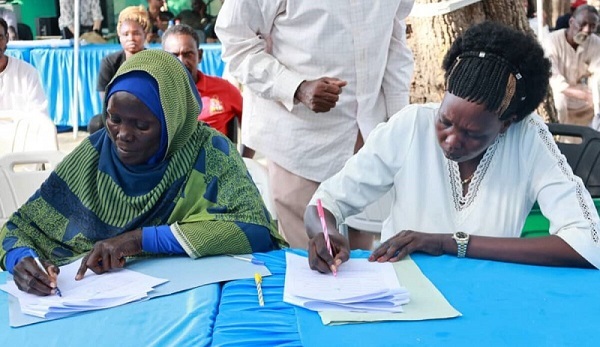by ROSS ANSON
NEW YORK – FOR centuries, Africa has been portrayed as a continent of migration—its people moving outward in search of opportunities in the West.
But what if the tide turned? What if the engineers, doctors, and tech entrepreneurs of Europe and North America found themselves seeking opportunities in Africa, only to discover barriers they never expected?
The Economic Shift
Imagine a world where Africa leads in technological innovation, industrial growth, and scientific breakthroughs.
Countries like Nigeria, Kenya, and South Africa establish themselves as global economic powerhouses, attracting Western professionals eager to be part of this prosperity. Tech hubs in Nairobi and Lagos rival Silicon Valley, boasting homegrown talent that leaves foreign applicants struggling to find positions.
Western engineers arriving in Africa are welcomed with polite smiles but told there are no vacancies—local universities have been producing top-grade candidates for years. Instead, they are offered work in garbage collection and road maintenance.
Tech graduates from Europe who once dreamed of changing the world are left grappling with the reality that they are now dispensable in the very region they sought for opportunity.
This reversal mirrors the struggles African immigrants face today, where highly skilled professionals are often directed toward low-paying jobs despite their qualifications. The narrative flips: instead of Africa losing its brightest minds to the West, Europe and America find themselves in a talent crisis.
Struggles of Professional Recognition
For decades, skilled African doctors and nurses migrating to the West have been forced to requalify, often taking years of exams before being permitted to practice medicine. Now, Western medical professionals moving to Africa face the same challenge.
Doctors from London and New York arrive in Accra, Kampala, Johannesburg, Nairobi, Abuja, Harare, Maputo, Windhoek, or Luanda, eager to contribute, only to be told they must undergo years of training before they can meet African medical standards.
In the meantime, they are offered positions as caregivers or nursing aides in elder care homes—jobs far beneath their skill level. Frustration mounts as they realize they are being treated like second-class professionals.
This scenario is not fiction. In real life, many African doctors moving to the West are required to redo years of study, despite their experience. The idea that Western medical professionals would have to go through the same hurdles forces reflection on the unfair standards imposed on African migrants today.
Reverse Brain Drain and Workforce Tensions
Just as Africa has long suffered brain drain, now Western nations struggle to retain talent. Young graduates from Europe and America, unable to find opportunities at home, set their sights on Africa’s booming economy. However, African countries prioritize their own graduates, resulting in waves of unemployed Western job seekers struggling to compete.
French architects seeking work in Abidjan, Ouagadougou, Niamey, Bamako, Conakry, Dakar, Libreville, Malabo, Lomé, or Freetown, discover they are outmatched by local professionals trained in cutting-edge urban development.
Canadian economists arriving in Nairobi realize they lack the regional expertise necessary to secure high-level positions. Without home-field advantage, these Western migrants find themselves marginalized.
Some Western professionals manage to find work by accepting lower positions, but resentment grows as they realize they are experiencing what many African migrants have endured for years—being overlooked despite their credentials.
Shifting Social Hierarchies
The effects of this migration go beyond employment. Western migrants now grapple with language barriers, cultural differences, and bureaucratic roadblocks that leave them feeling powerless. French and British citizens applying for residence permits in Senegal face endless red tape and delays. Americans arriving in Ethiopia struggle to navigate complex visa policies.
Accustomed to privilege, many Western migrants are stunned to experience what African immigrants have faced in the West—dismissive attitudes, skepticism, and outright discrimination. As they complain about being excluded from high-status jobs, African professionals remind them that they are simply undergoing the same treatment they once justified in their own countries.
Real-Life Echoes of Reverse Migration
While this scenario remains largely hypothetical, there are real-life examples of Western migration to Africa. Ghana’s “Year of Return” in 2019 saw thousands of African-Americans relocating to Ghana, drawn by its economic opportunities and cultural heritage. Many struggled with bureaucracy, business regulations, and social integration—echoing the experience of African migrants in the West.
Countries like Rwanda and Kenya have become attractive destinations for Western entrepreneurs seeking investment opportunities. Yet many find themselves navigating unfamiliar regulatory landscapes, realizing that African nations do not simply roll out the red carpet for foreign arrivals.
A Thought Experiment with Profound Implications
This imagined world of reverse migration challenges traditional power structures. It forces a reckoning with how global migration policies are shaped by historical privilege rather than fairness. If Western migrants faced the same obstacles that African professionals endure today, would attitudes toward migration change?
The answer may not lie in reversing migration entirely, but in recognizing the dignity and skill of every migrant—regardless of origin. The dream is not an Africa that shuts its doors to Western professionals, but a world where migration is based on mutual respect, rather than systemic bias.
Perhaps the lesson in this reverse migration story is simple: opportunity should not be dictated by birthplace, but by talent, effort, and a shared vision for progress.
– CAJ News




